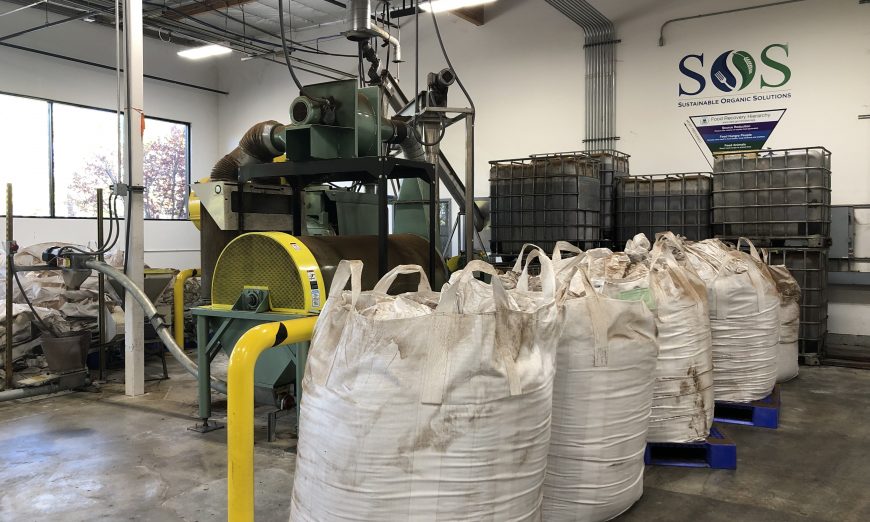The City of Santa Clara is getting ready to roll its food waste recycling program out citywide and when it does, all those food scraps will be going to a very special facility in Santa Clara.
Sustainable Organic Solutions (SOS) is housed in a warehouse on Walsh Avenue. The facility was specifically designed to take food waste and scrap and turn it into feed for animals such as pigs and chickens.
“This isn’t all new, [historically] it’s always been food waste that has been fed to [animals], it’s just times have changed,” said Louie Pellegrini, Co-owner of SOS. “What this technology has done is we found a cost-effective way to dehydrate it. Low-energy cost.”
SOS is a joint venture between Pellegrini’s company Garden City Sanitation and Sustainable Alternative Feed Enterprises (SAFE). It was created around the time the state of California began considering legislation to reduce the amount of food waste going to our landfills.
“We’ve always prided ourselves in reading the tea leaves, what’s coming,” said Pellegrini. “We’re basically a hauling company, never owned any landfills, so we’ve always been motivated to find ways to have solutions for our customer base other than landfilling.”
While many people turn to composting as a way to dispose of food waste, the Food Recovery Hierarchy devised by the Environmental Protection Agency (EPA) says converting food scraps to animal feed is preferable.
“In dealing with organic stream in the state of California, there’s not one silver bullet that’s going to take care of it,” said Pellegrini. “It’s going to take a long time and there’s multiple solutions. The goal is to have the one that can get the job done at the lowest cost and as soon as possible and we think that’s what this technology brings.”
Trucks filled with a slurry created from the food waste are pumped into the SOS system. That food waste is then spun at high speeds to separate the oils and liquids from the food particles.
The food particles move into a dehydrator where, under a vacuum, they are dried out into a dry meal. Pellegrini says while what goes in is rotted food, what comes out is completely safe for animals.
“To us, it might be rancid, but once we’ve created [the meal], it’s stabilized,” said Pellegrini. “During the process that we have, there’s requirements for pathogen reduction before you can feed it back out…all the rancidness or stuff that would affect us, humans, are killed through the process and don’t affect the animal. Before any of our product goes to market, we do sampling and testing.”
To make sure the feed is safe for animals, the SOS facility is regulated by the California Department of Food and Agriculture as a feed mill.
The dry meal produced still contains the proteins, carbohydrates and amino acids that were present in the food. It’s used to create feed for animals and SOS is also using the meal to create dog food and dog treats to sell commercially.
The facility takes the oil that is extracted in the process and sends it to a company that creates biodiesel fuel.
Currently, the facility is running at about one-third of its full capacity. It is handling food scrap waste from Sunnyvale, Milpitas, Santa Clara and Santa Cruz.
For more details on how SOS recycles food scraps, visit www.forktofeed.com.






